A judge sided with Michael Jackson’s estate Thursday and blocked an attempt by accusers Wade Robson and James Safechuck to obtain “the entirety of the criminal file” involving child molestation allegations leveled against the singer in two California counties since the early Nineties. Photographs of Jackson’s nude body and genitalia taken by Santa Barbara County sheriff deputies in connection with a 1993 criminal investigation were part of the rejected request.
“These requests for evidence relate to basic fairness, so we can all have the same evidence,” John Carpenter, the lawyer representing Robson and Safechuck, argued in a Beverly Hills courtroom shortly before the judge shut him down. “It can’t be disputed that this evidence is relevant. … We need these subpoenas not only to get the evidence but to establish foundation [for other alleged evidence].” In a related filing, Carpenter said the records might help identify new witnesses for his clients’ case.
Los Angeles County Superior Court Judge Michael E. Whitaker said Thursday that it wasn’t “lost” on him why Robson and Safechuck were seeking “this body of evidence” leading up to trial. “It goes without saying why you want this. But you’ve got procedural problems,” the judge said. After hearing from both sides, Judge Whitaker blocked the records requests for two reasons. First, he cited a 2018 ruling that quashed similar subpoenas in Robson’s case before it was consolidated with Safechuck’s earlier this year. Second, he said Robson and Safechuck failed to send the requisite warning notices to related parties informing them that their private, possibly highly sensitive personal information might be contained in the documents sought.
Robson, 41, and Safechuck, 46, allege in their combined case that Jackson’s business entities, now controlled by his estate, should be held liable for their alleged abuse by the late singer when they were prepubescent minors. Robson, a choreographer and director, first sued the estate in May 2013 with allegations his abuse started in 1990 and lasted approximately seven years. Safechuck, a writer, actor, and director, first sued in May 2014 with claims his purported abuse occurred between 1988 and 1992.
After their cases were consolidated in February, Robson and Safechuck sent their jointly served subpoenas to police and prosecutors in Los Angeles County and Santa Barbara County in March. The subpoenas requested everything in Jackson’s investigation files starting with the 1993 probe of allegations the singer sexually abused a 13-year-old boy at Neverland Ranch. (No criminal charges were filed over the 1993 allegation. Jackson reached a private settlement with the boy’s family.)
The March subpoenas were detailed, seeking evidence collected during searches of both Neverland Ranch and Jackson’s Hayvenhurst home in Los Angeles as well as the photographs of Jackson’s nude body and genitalia taken by the Santa Barbara County Sheriff’s Office (SBCSO) during a search warrant served on Dec. 20, 1993. Carpenter argued Thursday that Jackson’s estate already has all the files, so his clients deserve them too. One of the estate’s defense lawyers in the current case is Tom Mesereau, the lawyer who won Jackson’s 2005 acquittal on criminal molestation charges involving another boy in Santa Barbara County.
In their motion to quash the subpoenas granted Thursday, lawyers for Jackson’s estate argued that Robson’s prior attempt to serve such subpoenas on the Los Angeles County Police Department (LAPD), the Los Angeles County District Attorney’s Office (LACDA) and the Santa Barbara County District Attorney’s Office (SBCDA) was blocked by a different judge in a ruling on July 5, 2018. For his part, Carpenter questioned the value of that ruling since it came after Robson’s case was dismissed on a summary judgment ruling in December 2017. (Robson, like Safechuck, appealed his case dismissal, and both cases were revived in an appellate ruling last summer that sent the lawsuits back to Los Angeles County Superior Court for trial.)
On Thursday, Carpenter tried to argue that even though a judge shot down Robson’s subpoenas in 2018, Safechuck had never issued any subpoenas to the authorities in the two counties before this year. The judge said it didn’t matter since the cases had been consolidated. The judge added that the subpoenas issued in March were defective because they lacked the necessary third-party notice.
Speaking to Rolling Stone on Thursday night, Carpenter said he planned to try again.
“This is not a permanent ruling, in my opinion. I have to fashion a different subpoena on behalf of Mr. Safechuck and somehow give notice to the known [alleged] victims of Michael Jackson and the ones that I don’t know about, probably by way of publication,” Carpenter said. He agreed that any alleged victims and witnesses previously involved in the investigations deserved notification. “They have the right to come forward and make sure that their privacy and anonymity are protected in every way possible. I’m definitely in favor of that,” he said.
Lawyers for Jackson’s estate did not respond to an email seeking comment.
Judge Whitaker, meanwhile, ordered the parties back to court in October to discuss setting a trial date. He said considering the complexity of the case, he believes any trial would involve more than 100 hours of witness testimony, qualifying it for a special assignment to a different courtroom. He said if that’s the case, the parties likely would have to wait until at least the spring 2025 to face a jury. A lawyer for Jackson’s companies said last February that she didn’t believe the case would be ready for jurors until after December 2026. She said the trial likely would last more than 20 days with dozens of witnesses.
The case is a novel one. The August 2023 appellate ruling that revived the previously dismissed complaints from Robson and Safechuck found that companies can owe their own separate duty to protect victims even if they’re “solely owned” by an alleged perpetrator of abuse.
Jackson’s estate has denied any liability in the now consolidated lawsuit. In a 2019 interview with Rolling Stone, Jackson’s family members claimed Robson and Safechuck had made false claims for financial gain. “It’s about the money,” Marlon Jackson said at the time.
Robson and Safechuck both appeared in HBO’s two-part documentary, Leaving Neverland, where they detailed how Jackson, who died in 2009, allegedly groomed and sexually abused them for years while they were boys.
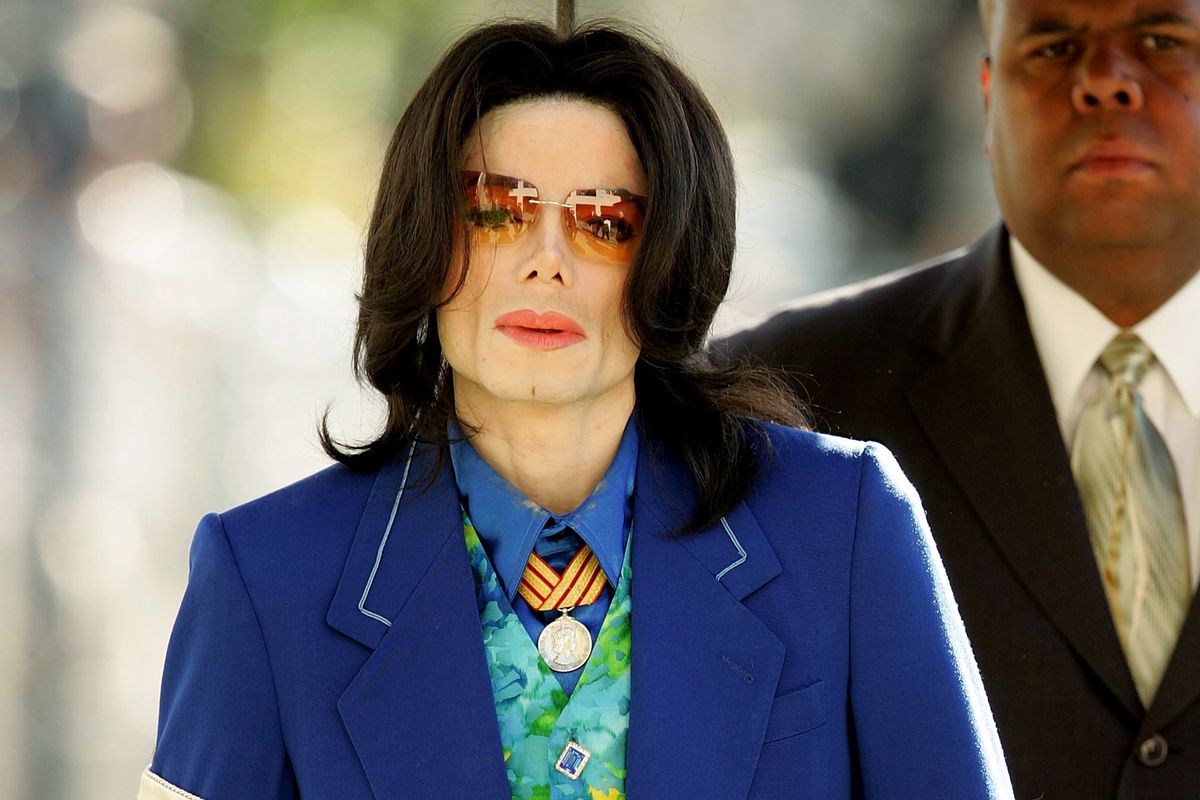






 Coat (polyester and wool), shirt (silk), Dries Van Noten, SSENSE.com / Flower (silk), M&S Schmalberg
Coat (polyester and wool), shirt (silk), Dries Van Noten, SSENSE.com / Flower (silk), M&S Schmalberg
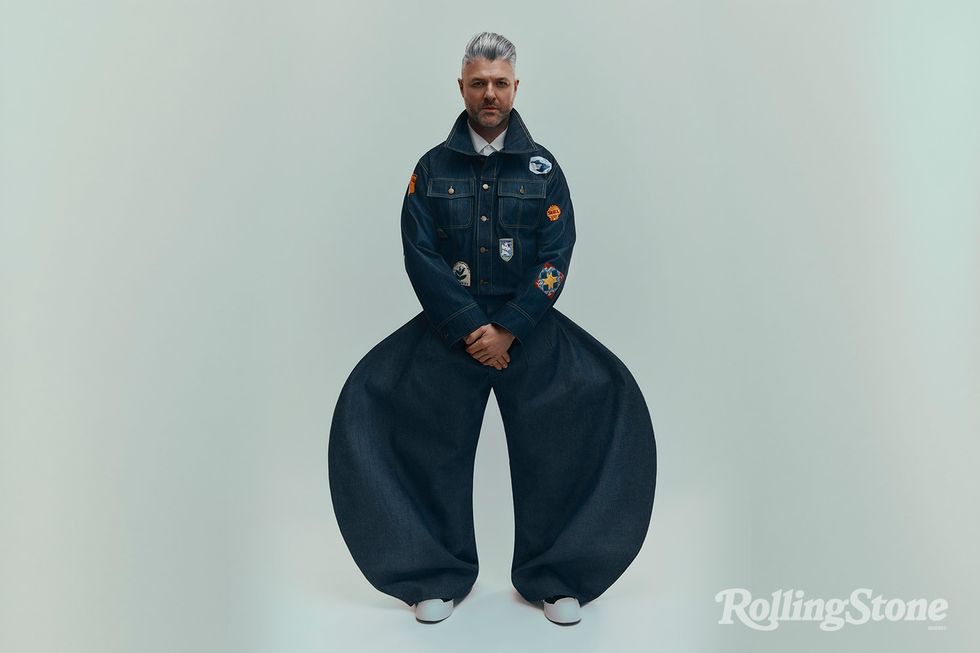 Blouson (denim and hand embroidered patches), WJ Crosson / Shit (polyester), Homme plissé Issey Miyake, Holt Renfrew/Pants from personal collection/ Shoes(canvas), Marni
Blouson (denim and hand embroidered patches), WJ Crosson / Shit (polyester), Homme plissé Issey Miyake, Holt Renfrew/Pants from personal collection/ Shoes(canvas), Marni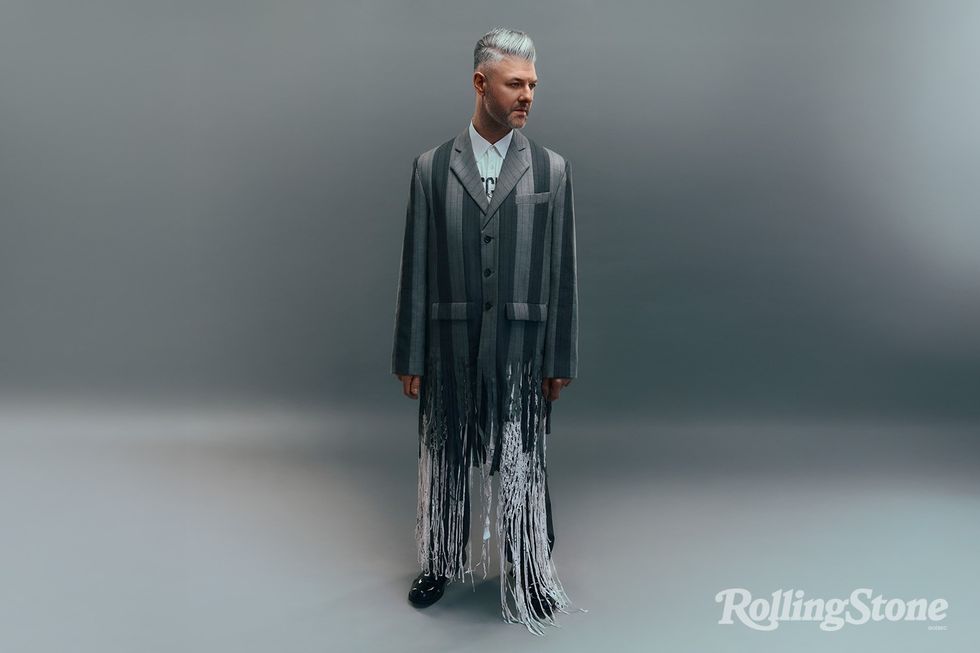 Jacket and pants (virgin wool), shirt (acrylic coated cotton), Moschino / Shoes from Pierre Lapointe's personal collection
Jacket and pants (virgin wool), shirt (acrylic coated cotton), Moschino / Shoes from Pierre Lapointe's personal collection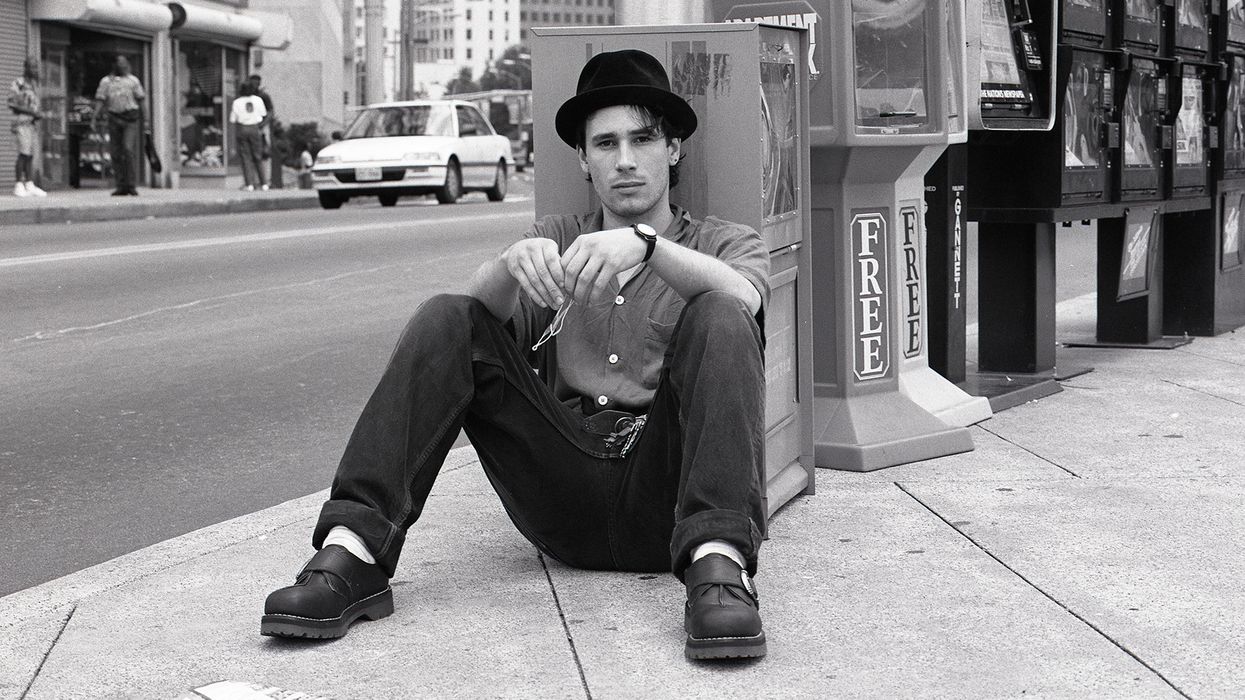

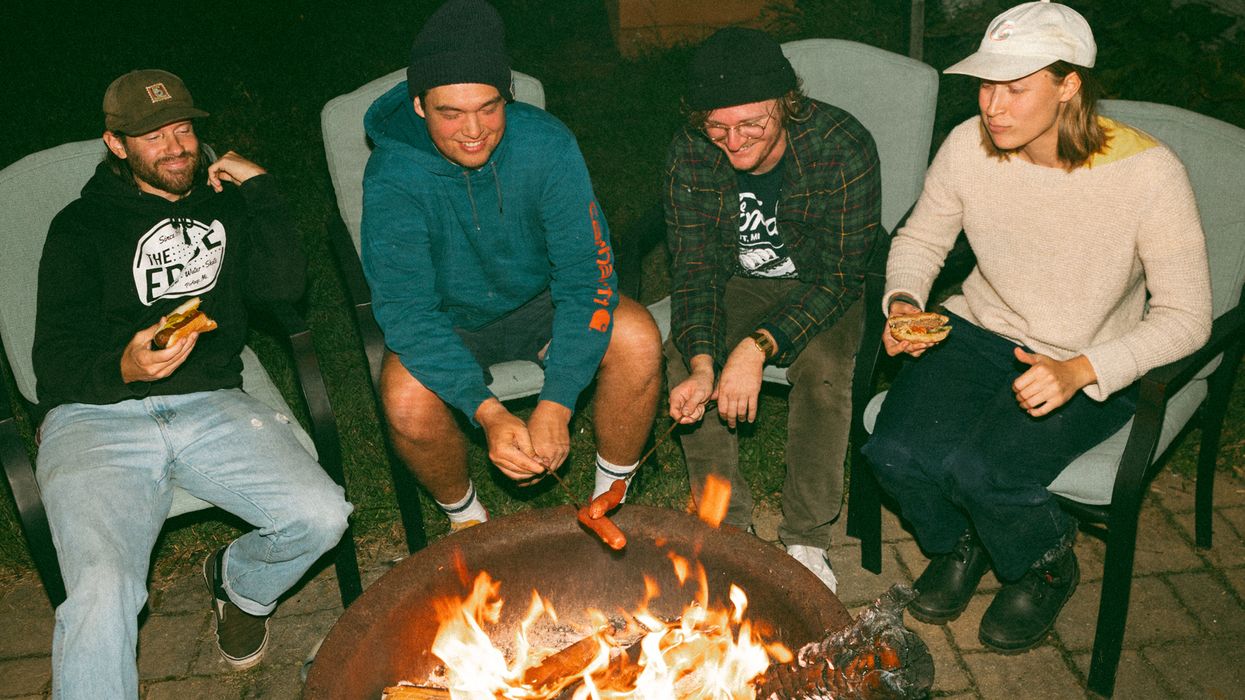
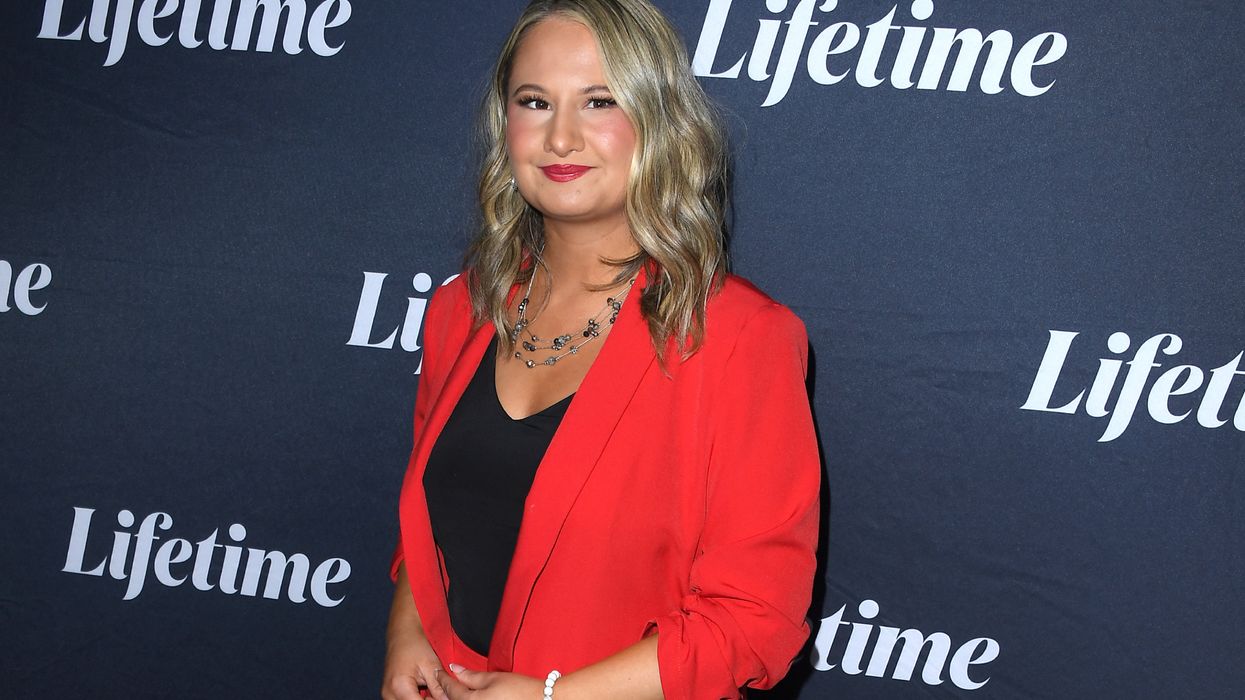

 Jean Jacket: Repull/Jewelry: Personal collection
Jean Jacket: Repull/Jewelry: Personal collection Hat: Xtinel/Dress shirt and vest: Raphael Viens/Jewelry: Personal Collection & So Stylé
Hat: Xtinel/Dress shirt and vest: Raphael Viens/Jewelry: Personal Collection & So Stylé  Dress: Helmer/Jewelry: Personal Collection
Dress: Helmer/Jewelry: Personal Collection  Jewelry: Personal Collection
Jewelry: Personal Collection  Dress: Helmer/Jewelry: Personal Collection
Dress: Helmer/Jewelry: Personal Collection 

 Catering Presented By The Food DudesPhoto by Snapdrg0n
Catering Presented By The Food DudesPhoto by Snapdrg0n Catering Presented By The Food DudesPhoto by Snapdrg0n
Catering Presented By The Food DudesPhoto by Snapdrg0n Catering Presented By The Food DudesPhoto by Snapdrg0n
Catering Presented By The Food DudesPhoto by Snapdrg0n
 Photographer: Raphaëlle Sohier / Executive production: Elizabeth Crisante & Amanda Dorenberg / Design: Alex Filipas / Post-production: Bryan Egan/ Headpiece: Tristan Réhel
Photographer: Raphaëlle Sohier / Executive production: Elizabeth Crisante & Amanda Dorenberg / Design: Alex Filipas / Post-production: Bryan Egan/ Headpiece: Tristan Réhel Photo: Raphaëlle Sohier
Photo: Raphaëlle Sohier Photo: Raphaëlle Sohier/ Photo production: Bryan Egan/ Blazer:
Photo: Raphaëlle Sohier/ Photo production: Bryan Egan/ Blazer:  Photo: Raphaëlle Sohier/ Blazer: Vivienne Westwood/ Skirt :
Photo: Raphaëlle Sohier/ Blazer: Vivienne Westwood/ Skirt : 
